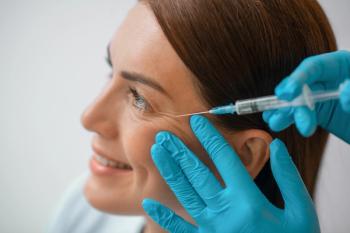
- Dermatology Times, August 2020 (Vol. 41, No. 8)
- Volume 41
- Issue 8
Proprietary supplements largely unnecessary
Consumers can get virtually all of today’s hottest skin, hair and nail nutrients without buying special supplements, an expert says.
Consumers can get virtually all of today’s hottest skin, hair and nail nutrients without buying special supplements, says an expert.
Unlike multivitamins designed for overall health, says Zoe Diana Draelos, M.D., supplements marketed for the skin, hair and nails usually include costly specialized vitamins. She is president of Dermatology Consulting Services, PLLC., High Point, N.C.
“The question I wanted to answer is, do you need a special supplement? What’s unique about skin, hair and nail vitamins?”
Every skin, hair or nail supplement she has examined contained vitamins A, B (various forms), C, D and E, all of which can be found in multivitamins as well.
“Vitamin A is important for vision. We know there are retinoid receptors in the skin that are necessary for skin health,” she says.
RELATED:
Folic acid (vitamin B9) helps prevent cardiac disease and supports reproduction of DNA, RNA and red blood cells and is therefore associated with skin, hair and nail health, says Dr. Draelos. Biotin (B7) deficiency causes poor nail and hair growth, she adds, but biotin supplementation is not useful for hair and nail growth in healthy people.
Vitamin C is necessary for producing collagen, boosting immunity and fighting free radicals. Vitamin D is actually a sex hormone.
“Deficiencies are quite common,” she says.
But typical multivitamins do not contain enough vitamin D because the actual needs of mature men and women are much higher than the current recommended daily allowance, says Dr. Draelos. She recommends 1,000 to 2,000 international units (IU) daily vitamin D supplementation.
Vitamin E is the most important antioxidant in the skin, she says.
“But you can get all the vitamin E you need by eating a couple slices of avocado,” she says.
If one closely examines the construction of a skin, hair or nail supplement, “It’s basically an incomplete multivitamin. And the added ingredients such as oral collagen and horsetail extract have no confirmed value for the skin, hair or nails,” she says.
Instead of specialized supplements, she recommends the following dietary sources of necessary nutrients:
Vitamin A: 2/3 cup of raw carrots
Vitamin B7 (biotin): one egg weekly
Vitamin B9 (folic acid): avocado or olive oil
Vitamin C: one raw tomato daily
Vitamin E: olive oil or 1/2 raw avocado
Selenium trace mineral antioxidant: one Brazil nut
Collagen: chicken, fish or collagen supplement
Antioxidants: one cup fresh blueberries or one unpeeled apple
“The take-home message is that these skin, hair and nail supplements are really not necessary from a health standpoint. The nutrition you need can be obtained very easily with a multivitamin or, probably better, through adjusting your diet to include more fruits and vegetables.”
DISCLOSURES:
Dr. Draelos reports no relevant financial interests.
Articles in this issue
over 5 years ago
Survey findings inform messaging on UV exposureover 5 years ago
Studies examine ingredient safety over lifetime useover 5 years ago
Pilot study examines facial microbiome diversityover 5 years ago
Topical minocycline foam safe, well-toleratedover 5 years ago
How to eat for healthy skinover 5 years ago
Skin microbiome altered in some rosacea subtypesover 5 years ago
A new business model for dermatologyover 5 years ago
Is Covid-19 a defense to a battery charge?over 5 years ago
A ‘biomarker’ of psychiatric adverse effects with isotretinoin?Newsletter
Like what you’re reading? Subscribe to Dermatology Times for weekly updates on therapies, innovations, and real-world practice tips.











